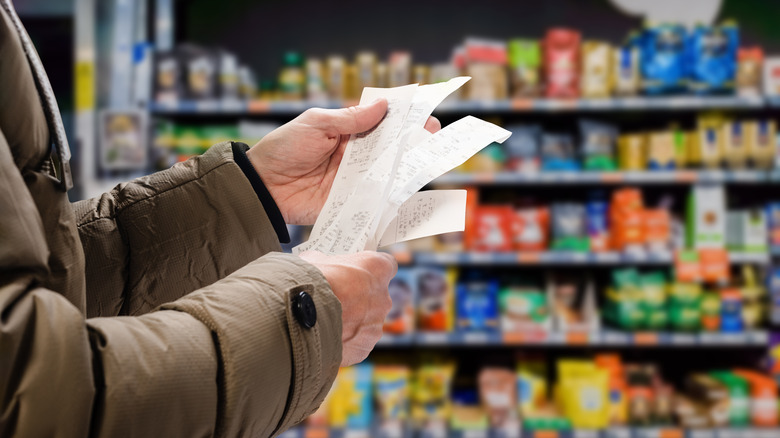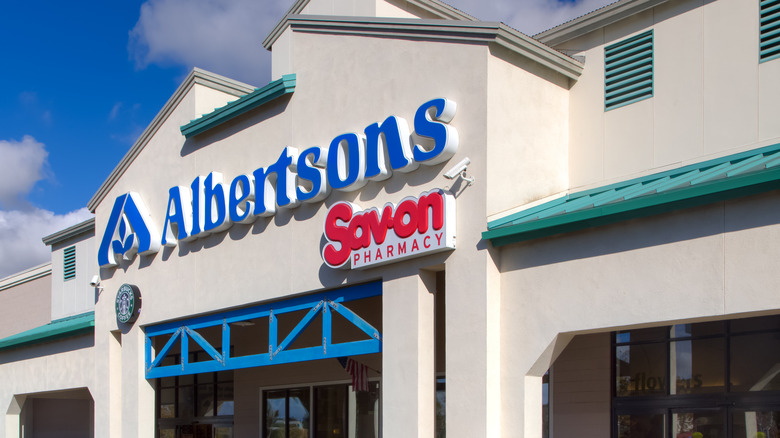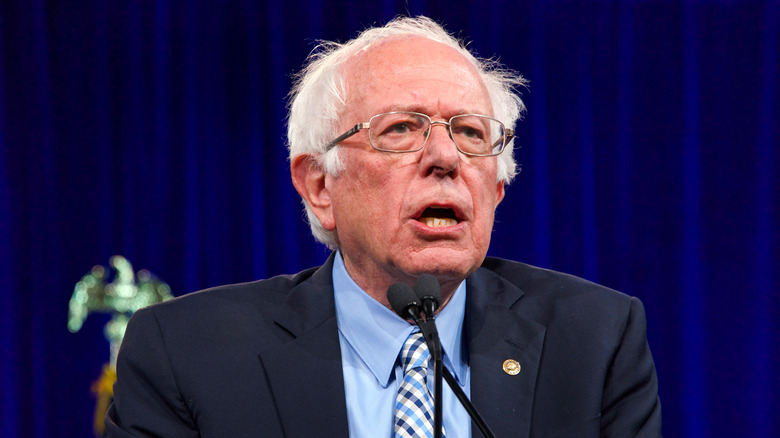Inflation May Not Be The Only Reason For Soaring Food Prices
As food prices continue to increase nationwide in the face of inflation, corporations are facing increased scrutiny over soaring profits. Last month, inflation hit a new record high with the cost of groceries alone up 10% in a year over year comparison (via NBC news). However, a new report in The Guardian indicates that some of America's largest grocers and food producers have capitalized on rising prices of consumer goods to rake in some of their greatest profits to date.
In an analysis of reported quarterly profits of 100 top U.S.-based companies, The Guardian found that corporate profits as a whole have risen substantially in the last two years, with a median profit increase of 49%. Over that same period, the median wage increase of U.S. workers was just 1.6%.
Previous reports have found that many of the companies racking in huge profits haven't been conservative when it comes to raising prices and seem to be operating under the assumption that Americans will continue to shop at a higher price point (via CNN). While supply chain issues and food shortages can be partially attributed to rising grocery prices, many retailers, food producers, and restaurant chains appear to be taking advantage of these buzzy issues by implementing wide-scale price hikes to pass on supply costs to consumers while avoiding scrutiny from their customer base.
Many corporations have experienced soaring profits
According to The Guardian, nationwide retailers like Albertson's (which experienced a staggering 671% increase in quarterly profits), Amazon (with a 333% increase), and Kroger (with a more conservative 5% increase) have raked in huge profits after increasing the prices of groceries and other consumer goods.
Similarly, food producers like Hershey raised the price of products like KitKat, Reese's, Jolly Rancher, and Twizzlers numerous times over the last year to the tune of a 62% profit increase. Some casual restaurant chains also experienced profit gains in the face of inflation, including Wendy's (up 92%), Chipotle (up 86%), and McDonald's (up 4%).
In addition to grocery stores and food retailers, other industries also saw huge spikes in profits in the face of rising costs. Financial analysis found that the oil, wheat, meat, steel, rubber, timber, and mining industries all experienced record-setting increases in profits. While Chevron's profits rose 240%, the steel company Steel Dynamics saw an 809% increase in profits.
Economists who studied The Guardian's data concluded that these sky-high profits are partially a result of companies passing on increased supply costs to customers ... and then some. In an earnings call with shareholders in June, one Kroger executive told investors that "a little bit of inflation is always good for our business," a quote that Senator Elizabeth Warren shared on Twitter as an example of recent corporate price gouging (via CNN).
Politicians have proposed bills limiting corporate profiteering
"It's obvious that corporations are trying to pass on any form of short-term pain they might be feeling ... and that's serving the top, wealthiest class instead of those in need of fair wages or products that are affordable," Krista Brown, a policy analyst with the American Economic Liberties Project, told The Guardian.
Although economists have been hesitant to officially call the recent price increases "price gouging" or "profiteering," scrutiny of these corporations' eye-catching profits has led to bill proposals in the U.S. House and Senate aimed at limiting excessive profits (via The Hill).
After proposing a "windfall profit" bill, which would levy a steep tax on excessive corporate profits, Senator Bernie Sanders said: "The American people are sick and tired of the unprecedented corporate greed that exists all over this country. They are sick and tired of being ripped-off by corporations making record-breaking profits while working families are forced to pay outrageously high prices for gas, rent, food, and prescription drugs" (via Bernie Sanders).
While it's unclear when or how grocery prices will descend from recent highs, it may be only a matter of time before American consumers start turning against the corporations draining their bank accounts one cereal box or carton of eggs at a time.


